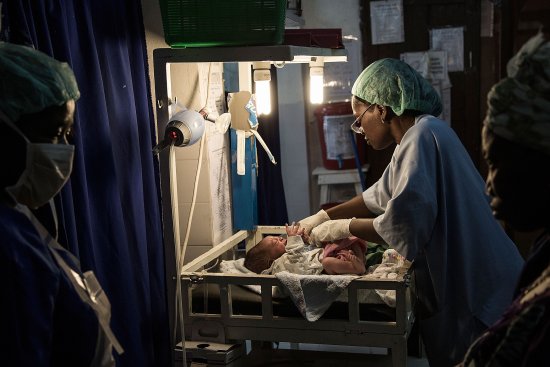
Two new reports show a lack of rudimentary sanitation in the developing world
Nearly half a million babies die every year from being raised in unhygienic conditions, according to a new report.
The briefing, from the non-profit organization WaterAid America, reveals that in the developing world one out of every five babies dies during their first month of life, but having clean water to bathe in could likely have prevented many of those deaths.
According to the data, babies born in Sub-Saharan Africa are 30 times more likely to contract an infection during their first month compared to babies in the developed world. In Sierra Leone, one out of every 21 women will have a child die from an infection during its first month of life. In the United States, that rate is one in 2,958 women.
One study the researchers reviewed showed that among 63 healthcare facilities with maternity units in Southern Nigeria, only one in five had soap near or in the delivery room.
The new WaterAid report comes on the same day the World Health Organization (WHO) released its own report on water, sanitation and hygiene. The WHO report, which looked at facilities in middle and lower income countries, shows that 38% don’t have access to an adequate water source, 19% don’t have sanitary enough conditions and 35% do not have water and soap for hand-washing.
That’s not good enough, WaterAid and the WHO both agree in their reports. When national and international governments develop plans to tackle public health problems like malnutrition, childhood diseases and newborn deaths, they need to also address basic hygiene services, the authors of the WaterAid report conclude.